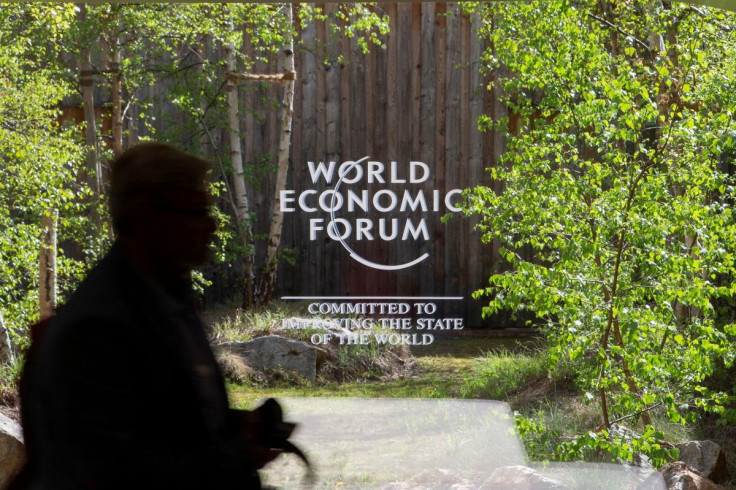Davos Means Business Just Like QUAD Means Integrated Deterrence

At the QUAD summit in Tokyo and the annual World Economic Forum (WEF) meeting at the Swiss ski resort town of Davos, there is no room for the frivolous fringe to distract and divert attention because the meetings are taking place as history is at a turning point.
The four-nation security groups' ongoing meeting in Japan, convened by U.S. President Joe Biden, and the global business community's first in-person meeting since the pandemic, are travelling in the same boat to thrive in a post-pandemic and Ukraine invasion world.
If allies are of paramount importance to U.S. President Biden to piece together an integrated deterrence strategy to create a new world order, for Klaus-Schwab, founder of WEF, which conducts the annual conference, partnerships are needed to restore trust due to the pandemic and the conflict involving Russia and U.S.-led NATO allies.
No wonder the Davos meeting is themed "History at a Turning Point", this year because of the Ukraine crisis and is going to be the most consequential since the WEF was set up 50 years ago.
Having been postponed on multiple occasions, the WEF 2022 is meeting in springtime rather than January - when it is usually held - for the first time. Instead of snowy alpine scenes, delegates and visitors to the 2022 event are greeted by green mountainscapes and warm sunshine.
The return of war, epidemics, and the fossil fuel crisis have acted as disruptive forces to derail the global economy. Global Inflation is at a record high in decades and people have fallen on hard times due to the loss of purchasing power.
This time the WEF meeting definitely leaves less room for chit-chatting as the global economy has to prove that it is active and ticking after a lull caused by the pandemic. The message has to reach among nations that there is no reason to worry about future prospects.
Russian is the talk of the town but WEF organizers have banned Russian companies or representatives from the meeting. However, Ukrainian delegates feature heavily, with President Volodymyr Zelenskyy addressing the event via Livestream May 23.
It is rare and unprecedented at the Dovas meetings that political and social circumstances overshadow and guide the world business community. However, this year captains of the industry and top policy-makers are left with no choice but to pay attention to the geopolitical compulsions of the Russian invasion of Ukraine.
Thus, the added attraction on the agenda is the Ukraine crisis where Russia, 11the largest economy and second-largest energy and a major wheat exporter is engaged in a special military operation in the neighboring nation.
If the Ukraine crisis is forcing the WEF meeting to be more strategic, the first face-to-face reunion this year after the pandemic, which caused 15 million deaths, according to the WHO, is going to be more personal, national, and global while unveiling its Covid-19 recovery strategy. Though the world has largely put the pandemic behind, the fear is still palpable.
A significant part of the WEF anti-pandemic agenda this year is concerned with the prevention of zoonotic diseases and the management of lockdowns in the future.
The Davos 2022 is keen on swearing by its climate-related credentials. Schwab has described this year's meeting as a Climate Summit as it is pushing the green initiatives of the UN climate summit COP 26. Despite the global energy crisis taking place due to the Ukraine crisis, green energy transformation is not going to take a backseat at the Davos meeting this time.
The pushback against organizers is that many attendees come to Davos by way of private jets, questioning the event's eco-credentials.
In the last decade, the world has achieved several grim climate milestones: the last seven years were the hottest on record, and the UN has predicted around 560 natural disasters a year, or 10.7 a week, by 2030 in its Global Assessment Report 2022 (GAR2022) published by the UN Office for Disaster Risk Reduction.
Since governments, businesses, or civil society cannot address these challenges, the Forum is mooting its pet theme of public-private cooperation.
And under its agenda of stakeholder capitalism, Davos stands for a global economy that works for prosperity, people, and the planet.
Instead of the usual reassured narratives, QUAD in Japan and WEF in Switzerland are utmost serious this time and are allied in spirit, too.





